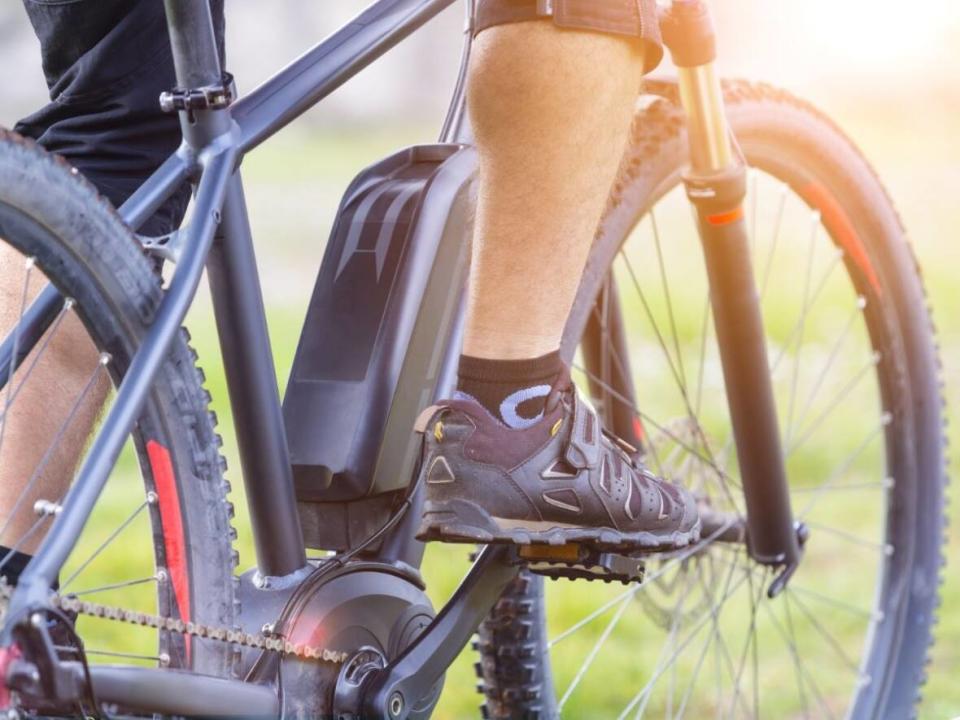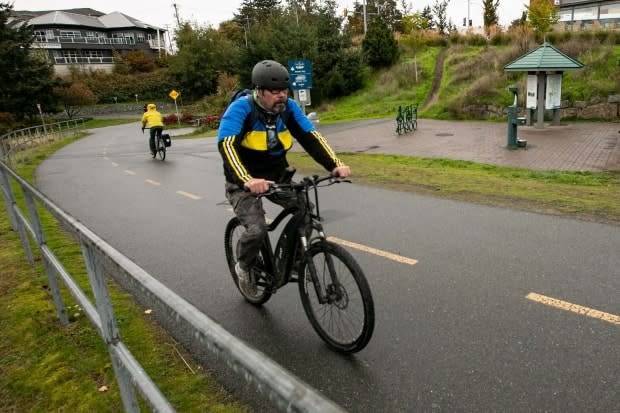E-bike rebates are now available in B.C. and they're expected to be popular

Starting Thursday, British Columbia residents over the age of 19 can apply for a government rebate to lower the cost of purchasing an e-bike.
Rebates are based on a person's income and range from $350 to $1,400.
To be eligible, the e-bike must cost more than $2,000 before taxes and be purchased from a participating e-bike retailer after June 1. You can view a list of retailers on this website.
Neil Davies of Burnaby's Jubilee Cycle, which has registered as a participating retailer, says many people have been asking about e-bikes in the last few days.
"Just yesterday alone we probably had half a dozen consumers in the store," he said.

The Ministry of Transportation and Infrastructure says it's spending more than $6 million on the rebate program, which will help up to 9,000 British Columbians lower the cost of their e-bike.
Rebates will go quickly, coalition says
Peter Ladner, chair of the B.C. Cycling Coalition, says he expects thousands will apply for the rebate.
"I think it's going to be taken up in the first few weeks," Ladner said. "It's all going to be used up."
He says he wants more money spent on the program.
"It makes cycling accessible for people who aren't tremendously fit, and it also makes it affordable," he said.
E-bikes, or power-assisted bikes, function like traditional bicycles but are equipped with a battery-powered electric motor to provide a boost when pedalling. Prices for e-bikes can range anywhere from about $2,000 to over $6,000.
The government says the program aims to make clean transportation more affordable and accessible.
UBC researchers to study rebate program
Scientists at the University of British Columbia's Research on Active Transportation Lab (REACT) will be studying the effectiveness of the rebate program. Rebate recipients will have the chance to participate in surveys and answer questions about their experiences.
A report from REACT, which summarized studies mostly conducted in Europe, found that each additional e-bike can reduce about 2,000 vehicle kilometres travelled per year, amounting to a net annual reduction of 460 kilograms in carbon dioxide emissions.
Amir Hassanpour, a PhD student in UBC's civil engineering department and a research assistant at REACT, says there are concerns that cities without adequate cycling infrastructure, such as bike lanes, will discourage people from purchasing e-bikes.
"Having a good cycling infrastructure is what makes cycling attractive. So if cycling is not attractive, there is a chance that fewer people from outside Metro Vancouver would participate," he said.
"That is definitely an issue and could potentially go towards inequitable distribution."
Hassanpour says researchers will look at the demographics of those receiving rebates, with a focus on geography, age, race and income.

 Yahoo Sports
Yahoo Sports 